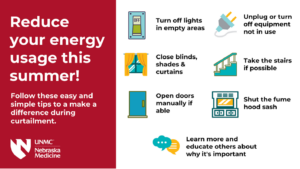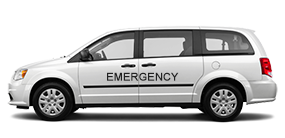Energy Curtailment
What is energy curtailment?
Energy curtailment involves temporarily reducing or shifting the heating, ventilation, or air conditioning (HVAC) system’s operation to manage energy consumption during peak demand times or unforeseen circumstances. This measure helps to ensure the overall stability and reliability of the energy grid.
During energy curtailment periods, you may notice changes in the indoor temperature of your building. Here’s what you can expect:
- Reduced Cooling:
- The air conditioning system may operate at a lower capacity, leading to higher indoor temperatures, especially during hot weather. This means that spaces may feel warmer than usual.
- Reduced Heating:
- During colder periods, the heating system may also operate at a reduced capacity, resulting in cooler indoor temperatures. Spaces may feel colder than usual during these times.
- Fluctuations:
- There may be more significant fluctuations in temperature throughout the day as the HVAC system adjusts to the curtailment schedule.
Note: Patient care areas and Research areas require stability in temperatures for various compliance reasons and are exempt from any curtailment measures. These spaces should not experience temperature changes due to curtailment. If you are in these space types and experience abnormal temperatures, please call 2-3347 (Nebraska Medicine) or 9-4050 (UNMC) to report abnormal space temperatures.
Campus customers in all other space types are asked to hold on reporting space temperature concerns during curtailment periods unless you experience temperatures below 66 or above 76.
Why do we go through all this effort?
Taking part in curtailment days is crucial because it:
- Ensures the continuity of essential systems for critical hospital and research functions.
- Reduces pollution: lowering our energy usage reduces the amount of greenhouse gasses produced, which have harmful effects on people and the environment.
- Improves the health of the entire community: creating more energy on the grid supports people receiving the services they need and lowers the effects of health concerns caused by the burning of fossil fuels and other climate-related impacts.
- Saves money: reducing your energy usage can decrease the amount of money the med center spends on those utilities. If a large amount of energy is reduced, the med center may have more funds to spend elsewhere.
- Supports our sustainability goals: achieving Net Zero emissions requires our campus community to reduce energy consumption and create sustainable systems.
What can I do to help?
To help ease summer electrical energy load, employees should:
- Ensure exterior doors and windows are closed
- Close shades, blinds, and curtains to reduce solar heat gain
- Lower lighting levels turn off lights in unoccupied areas, and when leaving a room, dim light levels whenever possible
- Adjust clothing; wear lighter clothing during warmer periods, bring layers to accommodate various space temperatures throughout campus
- Shut fume hood sashes when not in use
- Power Down by turning off all electrical equipment not in use (computers, coffee makers, printers, TV’s, monitors, etc.),
- Delay battery charging devices after 7 pm or charge at home Off peak use; consider delaying use of any energy intensive equipment during non-peak temperatures of the day
- Take the stairs instead of the elevator if you are able
- Open doors manually instead of using the ADA buttons, if possible
- Use revolving doors, where available (prevents intrusion of hot outside air)
- Talk to your manager, if you already have a flexible work from home option in your week, a curtailment day might be a good choice to work remote
To help ease winter energy loads, employees should:
- Ensure exterior doors and windows are closed
- Open shades, blinds, and curtains to increase solar heat gain
- Adjust clothing; wear warmer clothing to accommodate cooler temperatures, bring layers to accommodate various space temperatures throughout campus
- Move around; ensure you are getting up and moving around at least once an hour to ensure good circulation which helps you feel warmer (and is good for your health!)
- Shut fume hood sashes when not in use
- Use revolving doors, where available (prevents intrusion of cold outside air)
- Talk to your manager, if you already have a flexible work from home option in your week, a curtailment day might be a good choice to work remote




